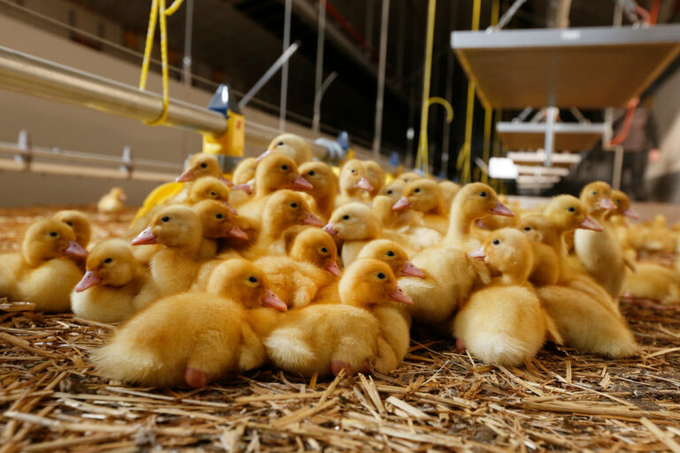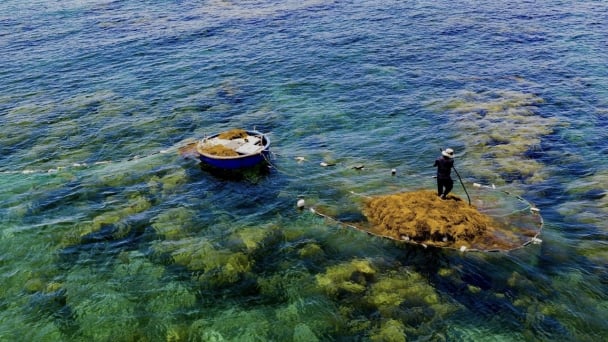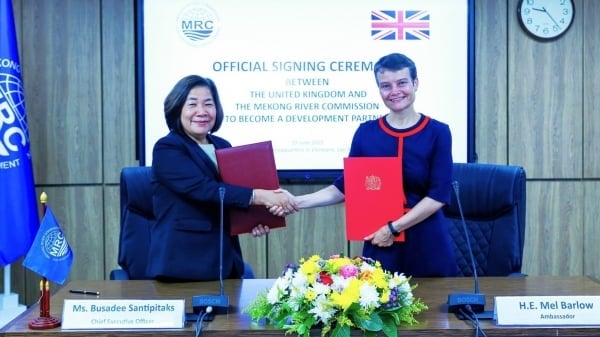June 22, 2025 | 02:37 GMT +7
June 22, 2025 | 02:37 GMT +7
Hotline: 0913.378.918
June 22, 2025 | 02:37 GMT +7
Hotline: 0913.378.918

Ducks are viral bombs and are extremely susceptible to bird flu, says poultry vet Leni Corrand. Photo: Hans Prinsen.
Corrand, who works for ANIBIO veterinary group, said Europe had had 5 major bird flu crises over the past decade, with 13 million birds culled in 2016/7, 22 million in 2020/1 and 46 million in 2021/2, including 21 million in France, most of which were ducks but also involved 4.5 million layers.
Speaking at the International Egg Commission annual conference in Venice, Corrand said a further 1 million layers and 200,000 pullets had also been lost in 2023, leading to a decrease in the national flock of 4.3% compared to 2021.
Ducks, he said, were viral bombs and were extremely susceptible to bird flu, shedding huge amounts of the virus. The mentality and culture of the industry meant that husbandry also led to virus spread.
He said that by the end of 2022 the traditional management pillars of early detection, reactive culling, preventative culling and biosecurity had perceived not to have worked. A poultry industry vaccination group was set up in the autumn of 2022, involving production companies, veterinary practices and pharma companies. It considered the practical implementation of vaccination and surveillance and evaluated 5 different scenarios, sharing their analysis with public decision-makers.
A steering committee was formed by the French government in January 2023 to take forward preventative vaccination. It decided to go for a mandatory preventative vaccination for all flocks of more than 250 ducks (64 million ducks), beginning in October 2023.
A tender for 80 million doses of Boehringer Ingelheim Animal Health VOLVAC B.E.S.T. was given the go-ahead in June 2023 and a second tender for 60 million doses, to be used between June and November 2024, got the green light in May 2024. This was split between VOLVAC B.ES.T. (33 million doses) and Ceva Santé Animale CEVA Respons (27 million doses).
The vaccine is co-funded by the State and duck industries, with the State paying 85% for the first year. So, the State also pays for part of injection labour, the veterinary logistics and supervision and active monthly surveillance. The industry pays for the passive weekly surveillance and part of the injection labour.
The estimated total costs has been €105 million for 60 million ducks, including 1.2 million breeders, which is far lower than the €1.4 billion that the HPAI crisis cost France in 2021/2.
Vaccination began on 1 October 2023 with meat ducks being injected twice, between day 10 and day 21, and then 3 weeks later. It can be administered at hatch but the Boehringer Ingelheim vaccine is oily and slows down the process and a large workforce is necessary. The Ceva vaccine can be done at hatch and then 21-28 days later and a smaller workforce is required, but there are logistical challenges including storing it at -80°C.
Corrand spoke about the voluntary nature of HPAI vaccination of breeding ducks with producers having to look at potential trade implications, the likelihood of infection and proximity to strategic sites. So far, 4 injections are needed in the rear of the ducks, and more investigations are ongoing – there are poorer antibodies that persist in Muscovy ducks.
In the first 10 months of the scheme, 45.7 million ducks were vaccinated with at least 1 injection of more than 2,230 farms, primarily in the west of the country.
Active surveillance is crucial with each farm having a monthly veterinary visit and 60T swabs (so 2-3 visits per flock) which go to PCR-accredited labs. Farmers have to do passive surveillance and so carry out swabs on 5 dead birds. These can go to private or state labs. Serology takes place at the end of the flock to ensure there is no viral infection that has not been disclosed in the PCR routine.
Between October 2023 and July 2024, a total of 650,000 samples were taken through active surveillance taking into account 11,000 vet visits. All samples have been negative for HPAI. In the same period, more than 26,000 samples were checked through passive surveillance and all samples have been negative.
Trade implications
Corrand admitted there were trade issues with 5 countries officially blocking French poultry imports because of HPAI vaccination. These were Japan, Thailand, the US, Canada and the UK. Ongoing discussions are taking place with the US and Canada, but it has been worrying for poultry meat and breeder exporters who have little economic leverage.
Notably, there has been less damage than with the 1,300+ outbreaks in recent years.
Traceability is important, with France using 3 different platforms:
Taking into account the predictive model, Corrand said only 13 outbreaks had been found in domestic flocks and while some had been in dense duck farming areas, they had not spread.
A paper, to be published shortly, from the University of Toulouse, has concluded that: “In the absence of vaccination, the expected number of outbreaks in France in 2023/4 was estimated at 487 (95% prediction interval 273-701). The vaccination campaign was effective in reducing the number of outbreaks in France in 2023, with a relative reduction of the outbreaks’ size of 95.9%.”
Corrand concluded by saying there was a promising vaccine technology for layers. Research has shown that HVT-H5 vaccines prevented virus transmission in a recent experiment. The calculated reproduction numbers for both HVT-H5 vaccine groups in this experiment were 0. The vaccine can be administered in-ovo technology and is suitable
(Poultryworld)
![Turning wind and rain into action: [11] Ten years before storms, after every harvest](https://t.ex-cdn.com/nongnghiepmoitruong.vn/608w/files/news/2025/06/20/z6704423696987_15fd32ffc26d590d204d520c9dac6786-nongnghiep-140922.jpg)
(VAN) With WeatherPlus, every raindrop and every breeze carries a message. And if we learn to listen, the fields will no longer live in fear of the weather.
![Turning wind and rain into action: [10] Advancing accessible climate services for farmers](https://t.ex-cdn.com/nongnghiepmoitruong.vn/608w/files/linhnhp/2025/06/20/1911-z6704423696987_15fd32ffc26d590d204d520c9dac6786-nongnghiep-161854.jpg)
(VAN) Not only does it help farmers 'avoid droughts and rains,' the development of agricultural climate services also enhances their ability to proactively adapt to a rapidly changing climate.

(VAN) With international assistance, the harvesting of sargassum seaweed in Quang Ngai has become increasingly regulated, thereby safeguarding marine life and ensuring the stability of coastal communities' livelihoods.

(VAN) On June 19, the United Kingdom officially became a Development Partner of the Mekong River Commission.

(VAN) Biodiversity is being threatened by traditional remedies made from wildlife. Traditional medicine and humans must change to live in harmony with nature.

(VAN) Agrifood investment and finance solutions for people and the planet.

(VAN) Microplastic contamination has become pervasive in seafood, posing unprecedented challenges for food safety and marine ecosystems.